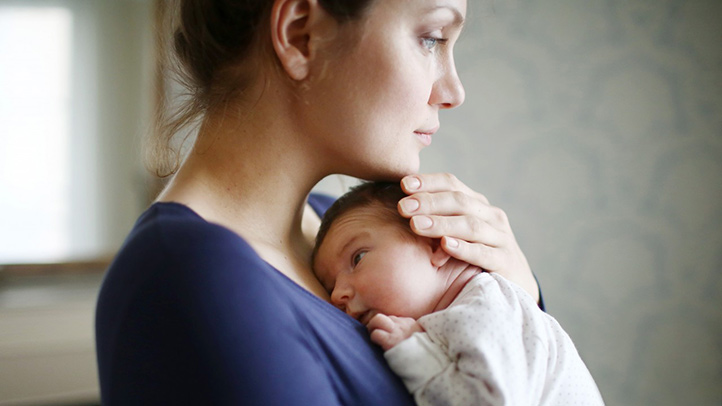Difference between baby blues and postpartum depression
Kimberly Wong, Postpartum Depression Activist, explains how you can tell if what you're going through is the baby blues, or a more serious condition known as postpartum depression.
Related Videos
Transcript
Expert Bio
More from Expert
Kimberly Wong
Postpartum Depression Activist
Kimberly Wong, Founder and Co-Chair of the Los Angeles County Perinatal Mental Health Task Force, has been an attorney with the Los Angeles County Public Defender's Office for 17 years and serves as Special Counsel/Legislative Analyst to the Public Defender. Kimberly co-chairs the Legislative Issues Committee of the Los Angeles County Domestic Violence Council and is a member of the Council’s Executive Committee. As a result of suffering life-threatening postpartum depression in 2003, after her recovery, Kimberly focused on volunteer activity to promote awareness and to increase knowledge about maternal depression. She volunteered as a phone support volunteer through Postpartum Support International and then served on the Board of PSI for three years.
In February 2007, Ms. Wong formed and currently co-chairs the Los Angeles County Perinatal Mental Health Task Force, a network of over 30 individuals representing more than 15 public and private agencies involved in outreach, screening, and treatment services for perinatal depression and related mood disorders, along with community leaders, research partners, and advocates for mothers, infants, and families. The mission of the Task Force is to create an infrastructure in Los Angeles County to address perinatal mood disorders through education, universal screening and linkage to informed services, with particular focus on high risk women and girls, including those who are court involved, substance abusers and domestic violence victims. The Task Force is a project of Community Partners, its 501(c)(3) fiscal sponsor.




 GET ACCESS TO ALL PREMIUM CONTENT WITH NO ADS FOR $4.99/MONTH
GET ACCESS TO ALL PREMIUM CONTENT WITH NO ADS FOR $4.99/MONTH




Login or Register to view and post comments